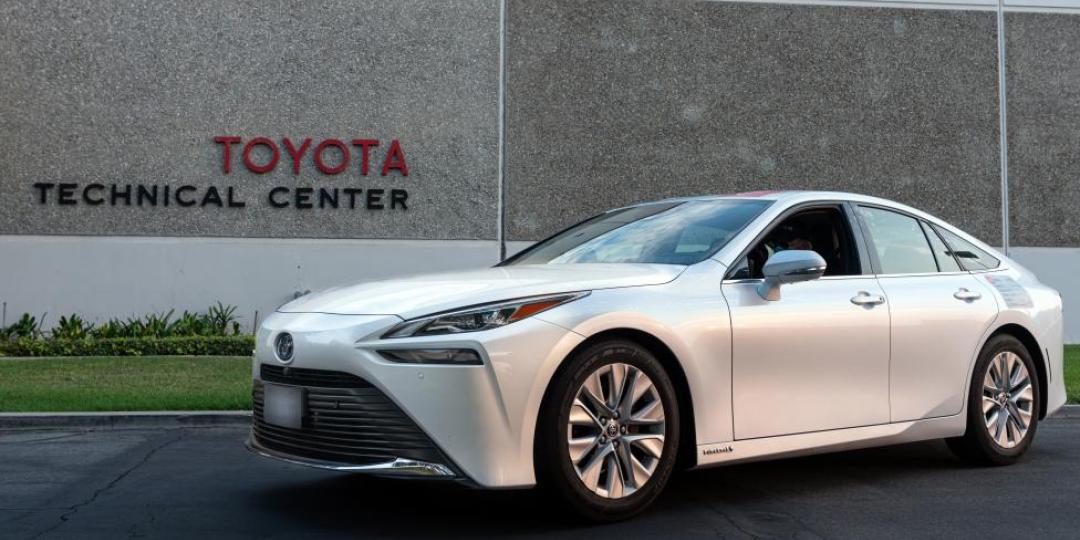Toyota is betting big on hydrogen technology in automobiles, both through fuel-cell EVs (FCEVs) and the hydrogen-powered engines, in a bid to become a carbon-neutral company, observes GlobalData, a leading data and analytics company.
Recently, Toyota, Kawasaki, Subaru, Mazda and Yamaha collaborated for production, transportation and use of hydrogen, the carbon-neutral fuel for future vehicles. Toyota already has a hydrogen-powered vehicle under development, which debuted recently at a racing event in Japan.
Bakar Sadik Agwan, Senior Automotive Consulting Analyst at GlobalData, says that Toyota looks more confident about the future of hydrogen while others may think it to be over-hyped. This does not mean that electric vehicles (EVs) are not a focus area for the company. Toyota has been heavily investing in the EVs and aims to invest US$13,5-billion over the next decade in battery production and to launch 15 electric models by 2025.
Toyota’s top management shows confidence in the success of the technology and believes that the issue is not with the internal combustion (IC) engine but the fuel for which hydrogen can be the best replacement. The company wants to be known as a carbon-neutral company which makes EVs.
Agwan continues: “Given the experience and capabilities of Toyota, investment in a hydrogen-powered engine for passenger vehicles is less of a gamble than it might be for others. The technology has been in development for decades and the company has a ready test vehicle. Toyota is aware of the technological challenges and recent developments are rather more focused on overcoming these challenges so as to make the technology ready to commercialise.”
Japan also shares Toyota’s hydrogen vision and has 154 hydrogen fuel stations across the country, the highest globally. The technology can be a breakthrough for Toyota and the automotive industry and could position the company as what Tesla is to EVs.
Additionally, the technology would cause limited disruption in the automotive industry unlike EVs and may help save jobs in Japan which are at risk presently due to the EV transition.
Agwan concludes: “Toyota needs to overcome a slew of challenges associated with hydrogen-powered engines to prove that the technology is not over-hyped, which will take some time. Going mainstream with hydrogen in the near-to-mid-term may remain a distant dream, while electrification is expected to remain a key channel for transition to carbon-neutrality globally.”















